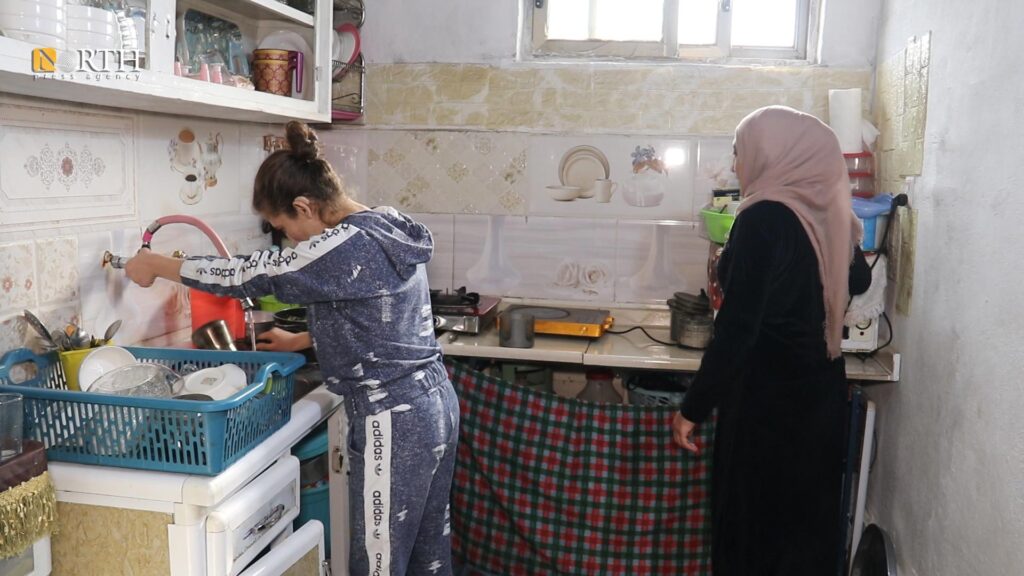Syrian female refugee uses drawing as non-verbal communication method
ERBIL, KRI, Iraq (North Press) – In front of her tent, Eva sits looking at passersby. She cannot hear them well or speak with them. A while later, she goes to her room; she brings her colored pencils and a small paper and starts drawing.
Eva Hajo was an infant when she had a fever that affected her speech and hearing. She is now at 17. She comprehends her surroundings but hears little.
Eva kept going to school until she reached six. However, bullying and difficulties implied in hearing and comprehending her lessons among many others precluded Eva to go on and contact her peers. She no longer went to the school.

Owing to difficulties in articulating her thoughts, her mother speaks for her.
Nizha Hajo, who used to support and back her daughter since she was a baby, encourages her to depend on herself. She sent Eva to the school, “but she was rejected by the society. No body befriended her, they bullied Eva.”
Eva was frustrated, she no longer goes to school, and this aggravates her more. She spends most of her time alone in her room. The family encouraged Eva to nurture her hobby in drawing.
Eva’s mother says, “We have made our efforts to take her out from this self-imposed isolation via drawing, and we have succeeded in doing so. Right now, she spends most of her times in drawing.”
Eva commenced treatment years ago; she had physical therapy sessions at the hands of a specialist and at another of a speech-language therapist. However, a session costs nearly $20, the family could not continue Eva’s treatment.
“We were all hope that we could continue her treatment, but that was very burdensome,” Nizha says.
Eva seems to have made use of the sessions she underwent, she articulates a number of letters in a better way. Her family has bought her hearing machine aid. However, still much is needed for Eva.
The family calls on NGOs to render support to the daughter to resume treatment whose costs are much higher than of a Syrian refugee family.
Eva has a wish that one day she will be able to display her paints to earn a living from her hobby that she professes to re-integrate into society again and to lead a normal life as her friends.

